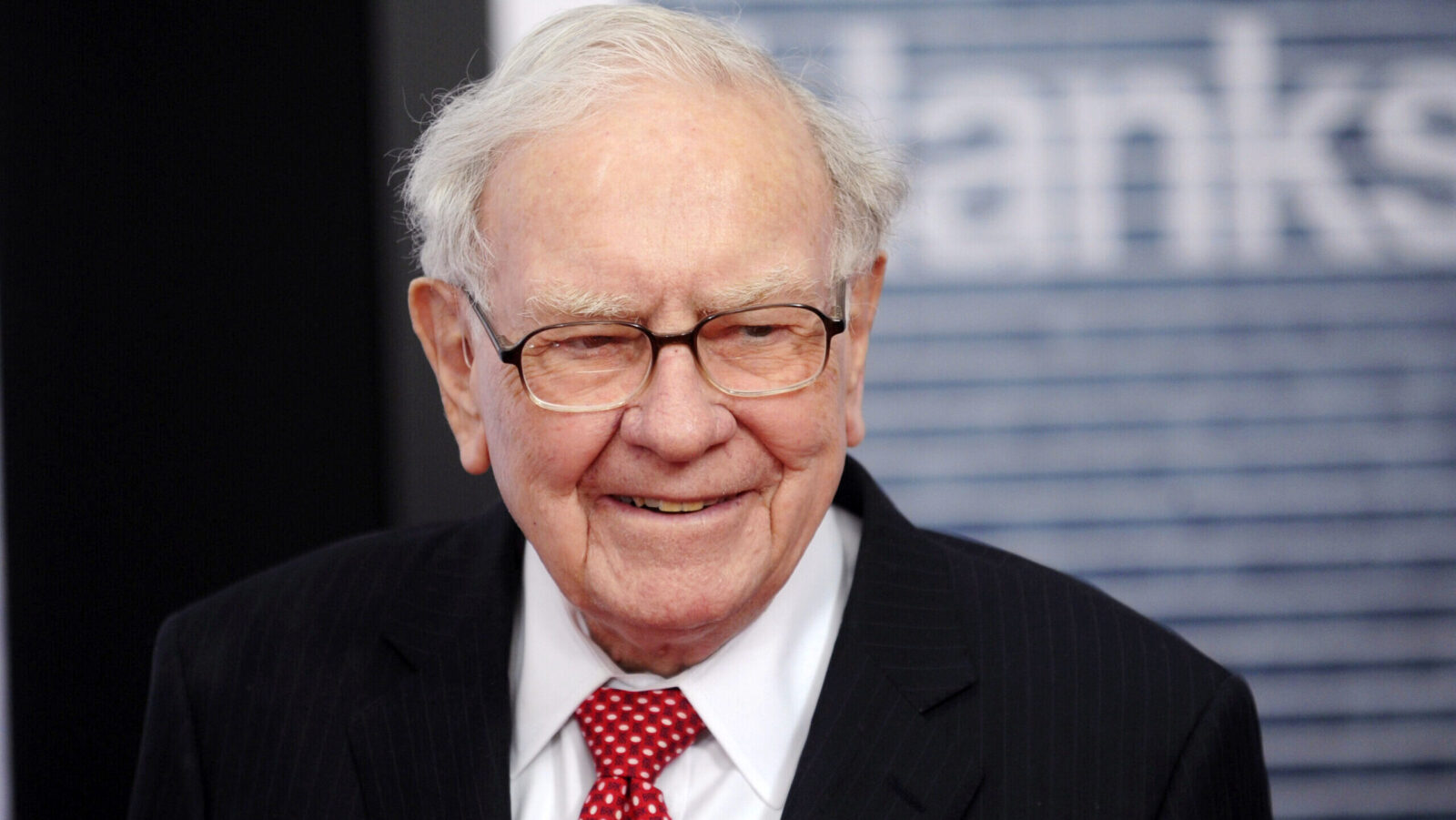Good morning.
After the Labor Department said earlier this week that headline consumer inflation came in softer than economists expected, the S&P 500 closed above 6,400 for the first time.
On Thursday, we got a different, significantly less benign inflation reading. The headline producer price index — which measures inflation for the producers and manufacturers of products at the wholesale level — jumped 3.3% in July. That was the biggest move since February, according to the Bureau of Labor Statistics. The gulf between CPI and PPI suggests businesses have been eating tariff costs, but many analysts project they’ll soon be passed on. Of particular note, the cost of vegetables at the PPI level rose 38.9% in July, meaning you may want to consult Martha Stewart about how to blanche and freeze vegetables before it’s too late.
Buffett Reveals Some of His Final Big Bets Before Retirement

Leave it to the no-nonsense, under-the-radar Berkshire Hathaway CEO Warren Buffett to reveal the most buzzed-about trading secret on Wall Street in a bureaucratic filing.
Berkshire’s latest Form 13-F, filed with the Securities and Exchange Commission, was made public Thursday after markets closed. It revealed a handful of new companies Berkshire has invested in, including stakes it sought to keep confidential earlier this year.
In Full Form
Berkshire’s 10Q filings this year suggested the holdings giant had added a sizable stake or stakes to its “commercial, industrial and other” investment categories. But Buffett’s firm also requested to keep at least one first-quarter investment confidential: This is a common strategy when building up stakes, one Buffett used in the past to accumulate holdings in Chubb, Chevron and Verizon. But when you’re the most famous investor on earth, even your quietest maneuvers garner Super Bowl-level viewership on trading floors, not to mention the sort of speculative guessing that comes in advance of the big game.
Given Buffett’s well-known investment philosophy, in which companies with reliable cash flows and a deep moat are king, speculative guesses ranged from defense contractor Lockheed Martin to construction equipment-maker Caterpillar and shipping giant United Parcel Service. Berkshire went in another direction and dropped a second-quarter surprise to boot:
- The mystery stocks that Berkshire started accumulating in the first quarter were homebuilders Lennar and DR Horton, as well as Nucor, America’s biggest steelmaker. That suggests, in particular, that Berkshire is going long on housing. Interest-rate cuts are coming, after all, aren’t they? Aren’t they?
- The big surprise, however, was a brand new, $1.6 billion stake in UnitedHealth, accumulated entirely during the second quarter. Berkshire steps in as the healthcare and insurance giant is reeling from soaring medical costs, facing a federal criminal fraud probe, and is warning its profits will drag for quarters to come.
Other companies Berkshire added in the second quarter were home security firm Allegion and billboard and outdoor advertising operator Lamar. It also pared its holdings in Bank of America and made further cuts to its remaining Apple shares, while divesting from T-Mobile, continuing a trend of moving money out of tech and financials.
Doubling Up: What Berkshire might see in UNH is value: The world’s largest healthcare company by revenue, it pays dividends (a quality shared by more than half the stocks Berkshire owns), and its shares have tumbled 46% this year. A turnaround would net a tidy sum, while the $1.6 billion position is but a fraction of Berkshire’s $300 billion portfolio, limiting risk. Of note, Scion, the investment firm of Big Short investor Michael Burry, also disclosed a new position in UNH on Thursday, meaning two “oracle” investors are making the same bet.
Is Your Retirement Strategy Due For A Tune-Up?

Many retirement plans look great on paper, but even the best ones need periodic adjustments for longevity, inflation, taxes and market volatility.
That’s why Edelman Financial Engines offers a complimentary Retirement Review to help you fine-tune your retirement strategy. The review includes:
- A customized roadmap for your optimal retirement based on your specific situation.
- Personalized investment recommendations coordinated with their in-house investment management team who manage $308 billion in assets.
- An estimated retirement income summary, including Social Security benefits.
The review, provided by Barron’s #1 independent financial advisory firm seven years running, awarded each September by Barron’s based on data within a 12-month period, comes with a one-on-one meeting with a financial planner to discuss how your strategy aligns with your goals.
This offer is only for households with $250K+ in investable assets.
Work one-on-one with a retirement expert to assess your plan.*
Make America Healthy Agenda Puts Politics on the Dinner Menu
Major food brands are rushing to overhaul their ingredient lists before the release of the Trump administration’s second “Make America Healthy Again” report. The new report, which is expected to outline strategies for addressing claims made in the first, was supposed to go live this week but has been delayed.
Under MAHA, companies have been scrutinized for their use of seed oils, high-fructose corn syrup and artificial dyes. Whether or not MAHA’s health claims are accurate and its policies enforceable, the food and beverage industry is entering the conversation and trying to use the moment as a marketing opportunity, according to several reports Thursday.
Tuning the Brand Voice
Most major brands that shoppers see on cereal boxes, snacks, and drinks are putting out announcements about how they’re aligning with MAHA guidelines:
- Froot Loops-maker WK Kellogg and Lucky Charms-maker General Mills both plan to eliminate artificial food dyes from their cereals. Meanwhile, Coca-Cola intends to release a cane-sugar version of its soda in the US, and PepsiCo said it’ll do the same with its namesake soda (plus add some trendy probiotics).
- The impacts go beyond groceries. Fast food chain Steak ’n Shake turned its recent switch from vegetable oil to beef tallow into an advertising campaign, while Bloomberg reports Starbucks is looking into how it could swap out canola oil at its cafes.
But using MAHA as a marketing moment could backfire. American shoppers are increasingly discerning, with only about half trusting food companies and a growing number scanning food labels, according to Ketchum. Companies want to fix that relationship and get on the Trump admin’s good side. At the same time, getting too cozy with MAHA policies could alienate customers who disagree with the initiative’s claims.
Tastes Can Change: Chobani’s founders warned that ingredient swaps can be a lengthy process (supply chains aren’t shuffled overnight) and one that not all customers like, not just because of their political beliefs. Case in point: General Mills, which promised this summer to remove artificial dyes from all its cereals, previously removed dyes from Trix cereal in 2016. But the cereal brand brought back the vibrant colors following customer backlash. One customer called the reformulated Trix, which used natural veggie-based dyes, “basically a salad.”
Get In Before The Next AI Gold Rush Potentially Takes Off. A radical new technology is supercharging AI, and one small company potentially owns the key. Analysts see a potential $80T valuation, rivaling the world’s biggest companies. History’s shown the biggest gains go to early movers. Get the report before the dust settles.
China’s Revolutionary DeepSeek Turns to American Hardware for Upgrade
When Chinese artificial intelligence startup DeepSeek debuted a chatbot that it said rivaled the best the United States had to offer, and at a fraction of the cost, venture capitalist Marc Andreesen called it “AI’s Sputnik moment.”
Seven months later, it appears DeepSeek needs some American rocket power to get its AI Sputnik off the ground. A Financial Times report on Thursday revealed that the release of DeepSeek’s new model was delayed after attempts to train it using chips from China’s Huawei failed.
Chip Shot Comes Up Short
After DeepSeek released its chatbot, based on the DeepSeek-R1 model, in January and saw it climb all the way to the top of Apple’s iOS App Store, Nvidia’s market value shed a stunning $600 billion, or 18% of its value. It was the biggest single-day loss for a stock in US history.
Nvidia, of course, has more than recovered: Last month, it became the world’s first $4 trillion company, as investments and improvements in AI models have continued unabated following the initial shock caused by the revelation of a highly efficient Chinese competitor to US AI models. In fact, it seems DeepSeek’s forthcoming model will depend on Nvidia before it finds its way to the App Store:
- Multiple sources told the FT that when the AI startup tried training its R2 model using Ascend chips made by China’s Huawei, they were insufficient for vast datasets, a crucial component of the development process. That left the company using Nvidia chips for training, and Huawei chips were used only for inference, which in AI refers to the step where an already trained machine learning model applies its training knowledge to newly introduced data (the simplest example being when someone asks a chatbot a question).
- While Nvidia recently struck an agreement with Washington to sell its H20 chips in China for a 15% cut of the revenue, Beijing has pressured companies there to use alternative technology developed by China’s Cambricon and Huawei. The problem is their chips suffer from greater stability issues, offer slower inter-chip connectivity between different circuits, and run on inferior software — so it’s sort of like being asked to tie your hands behind your back.
Chipping Away: Even if they’re not up to the cutting edge of the cutting edge, Huawei’s Ascend 910B and 910C chips remain highly useful for AI developers, including TikTok owner ByteDance, and the company is set to ship hundreds of thousands of units in 2025. Earlier this year, Huawei began contacting companies about testing a new chip in the early stages of development, the Ascend 910D, which it hopes will leapfrog Nvidia’s widely used H100.
Extra Upside
- Homeward Down: Mortgage rates fell to the lowest in 10 months this week in a boon for prospective homebuyers.
- Stay Grounded: Canada’s largest airline started cancelling flights on Thursday and could temporarily shut down starting this weekend due to a pending flight attendant strike.
- Want To Invest Alongside The VCs Behind Uber And Venmo? With tech reshaping a $1.3T real estate market, Pacaso has raised $270M+ to date from the VCs behind companies like Uber and Venmo – and 10K+ everyday investors like you. Join them today for $2.90/share.**
** Partner
Just For Fun
Disclaimers
*The Barron’s 2024 Top 100 RIA Firms list, a nine-year annual ranking of independent advisory firms, is based on qualitative and quantitative factors. Firms elect to participate but do not pay to be included in the ranking. The 2024 ranking refers to Edelman Financial Engines as the top mega RIA. The 2018 ranking refers to Edelman Financial Services, LLC, which combined its entire advisory business with Financial Engines Advisors L.L.C. (FEA) in Nov. 2018 and where FEA received a precombination ranking of 12th.
Assets under management are as of June 30, 2025.
**This is a paid advertisement for Pacaso’s Regulation A offering. Please read the offering circular at invest.pacaso.com. Reserving the ticker symbol is not a guarantee that the company will go public. Listing on the Nasdaq is subject to approvals.

